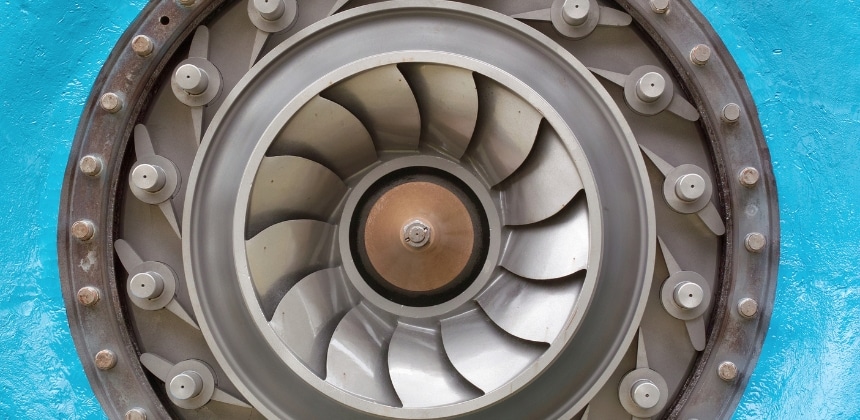Closed Impeller of Centrifugal Pumps
A closed impeller is a key component in centrifugal pumps, designed to facilitate fluid movement through a pump by converting mechanical energy into kinetic energy. It is one of the three main types of impellers, along with open and semi-open impellers. The closed impeller is particularly favored in applications where high efficiency, reliability, and consistent performance are required.
What is a closed impeller?
The closed impeller is an impeller type widely used in centrifugal pumps. Compared to other types of impellers, such as semi-open or open impellers, closed impellers are characterized by their blades being completely covered by two end plates, forming a closed structure. This design offers closed impellers higher efficiency and lower energy losses when handling clean liquids.
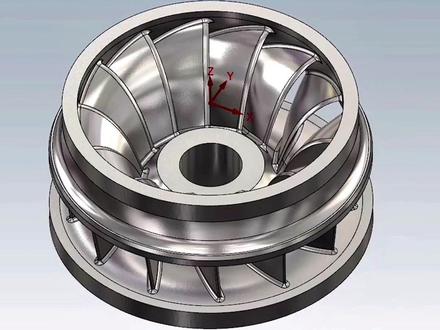
Design and Structure
Wheel cover or cover plate: Two parallel disks (front cover and rear cover) surround the impeller blades to form a completely closed structure. The front cover faces the suction inlet and the rear cover is close to the motor.
Vane: A curved vane directs fluid flow from the impeller’s center (impeller eye) to the outside. The shape and number of vanes play a key role in pump performance.
Impeller eye: After entering the impeller, the fluid is rapidly pushed outward by the centrifugal force generated by the rotation of the impeller.
Working Principle
Enclosed impellers work on the principle of centrifugal force. As the impeller rotates, fluid enters through the impeller eye in the center and is rapidly accelerated outward along the blades to the periphery. The closed design is equipped with a cover plate that reduces the recirculation and turbulence of the fluid, thus ensuring a smoother flow path and more efficient energy conversion. The kinetic energy of the fluid is then converted into pressure energy as it flows through the pump casing and out of the outlet.
Characteristics of Closed Impellers
High efficiency: The closed structure reduces liquid leakage and recirculation, energy loss is smaller and overall efficiency is higher.
Suitable for clean liquids: The closed impeller is suitable for handling clean liquids with no particles or low solid content. Since the impeller channel is covered by the end plates on both sides, impurity particles cannot easily enter the impeller interior.
Good durability: The relatively robust structure of the closed impeller can withstand high working pressures, making it suitable for applications requiring high durability and reliability.
The Importance of Enclosed Impellers
- Increased efficiency: Enclosed design reduces fluid recirculation and energy loss, allowing the pump to operate more efficiently and is particularly suited to high flow and high head applications.
- Stable and reliable: The enclosed impeller provides stable performance with reduced vibration and noise, while reducing wear on bearings and seals, extending pump life.
- Suitable for high-pressure applications: The enclosed impeller can withstand higher pressures, making it suitable for boiler feed pumps, booster pumps, and other applications requiring high-pressure delivery.
- Reduced risk of cavitation: By reducing internal fluid recirculation, the closed impeller reduces the risk of cavitation and protects critical pump components.
- Widely used: Due to its high efficiency and reliability, the closed impeller is widely used in municipal water supply, petrochemical, electric power and other industries.
Closed Impeller Applications
Clean water pumps: Used in municipal water systems, irrigation and HVAC systems to convey clean, particle-free fluids.
Boiler feed pumps: Enclosed impellers are used in power plants and industrial processes to feed boilers with high pressure water.
Chemical process pumps: Suitable for handling corrosive and abrasive fluids in chemical plants as long as these fluids are free of solid particles.
Petroleum industry: Used in crude oil transportation and refining processes where fluid characteristics require high efficiency and reliability.
Types of impellers
1. Closed Impeller
- Features: The blades are completely covered by two end plates (front and rear cover plates), forming a closed channel.
- Advantages: It is highly efficient, suitable for clean liquids, and reduces leakage and energy loss.
- Application: Widely used for handling clean liquids without particles or with low solid content, such as water treatment, cooling water circulation, petrochemical, food and pharmaceuticals.
2. Semi-Open Impeller
- Features: Only one end plate covers the blades, usually a rear cover plate with an open front.
- Advantages: Easy to clean, capable of handling liquids containing certain solid particles or high viscosity, low manufacturing cost.
- Application: Suitable for media containing solid particles or fibrous materials, such as sewage, mud and pulp.
3. Open Impeller
- Characteristics: The blades are completely exposed and not covered by end plates, usually the blades are connected to the hub in the center of the impeller.
- Advantages: Easiest to clean and maintain, suitable for handling liquids with large amounts of solid particles, least expensive to manufacture.
- Application: Used for applications that require strong self-priming capability or for handling liquids containing large amounts of solid particles, such as sewage pumps, slurry pumps and pulp pumps.
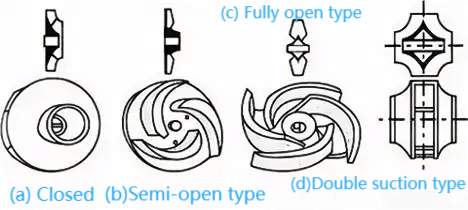
4. Multistage Impeller
- Features: Combination of multiple impellers in series in one pump body, each impeller stage pressurizes the liquid and increases the total head.
- Advantages: Capable of generating high head, suitable for conveying liquids over long distances.
- Application: Used for high head, low flow rate occasions, such as high-rise building water supply, boiler water supply pumps and oil field water injection pumps.
5. Helical or Screw Centrifugal Impeller
- Features: The impeller shape is similar to the spiral blade, usually used to deal with a large number of long fibers and solid particles in the medium.
- Advantages: High anti-clogging ability and self-priming ability, suitable for handling viscous liquids and media with high solid content.
- Application: Mainly used in sewage treatment, slurry pumping and food processing.
6. Axial Flow Impeller
- Features: Liquid flows through the impeller in the axial direction (parallel to the pump shaft), which is suitable for high flow and low head.
- Advantages: High flow rate, low head, suitable for conveying large amount of liquid, high efficiency.
- Application: Mainly used for drainage, agricultural irrigation, cooling water circulation and municipal water supply.
Comparison With Other Impellers
Closed impellers are the strongest compared to semi-open and open impellers because the two housings increase the structural strength of the impeller. The axial and radial thrust generated by closed impellers is not very high, which provides greater flexibility in bearing selection.
For Pumps With Closed Impellers
1. Clear Water Pump
- Application: Used for transporting clean water, such as in water supply systems, agricultural irrigation, and industrial water circulation.
- Reason: The closed impeller is highly efficient when handling clean water without solid particles, reducing energy loss and fluid leakage.
2. Boiler Feed Pump
- Application: Used in boiler systems to supply high-pressure water, commonly in power plants, petrochemical plants, and industrial boiler applications.
- Reason: Requires high head and high efficiency; the closed impeller design helps maintain efficient pump operation under high pressure while minimizing fluid backflow.
3. Multistage Centrifugal Pump
- Application: Used in applications requiring high head, such as water supply in high-rise buildings, long-distance liquid transport, and mine dewatering.
- Reason: The closed impeller design is suitable for the series arrangement of multiple impellers, helping to increase the total head of the pump.
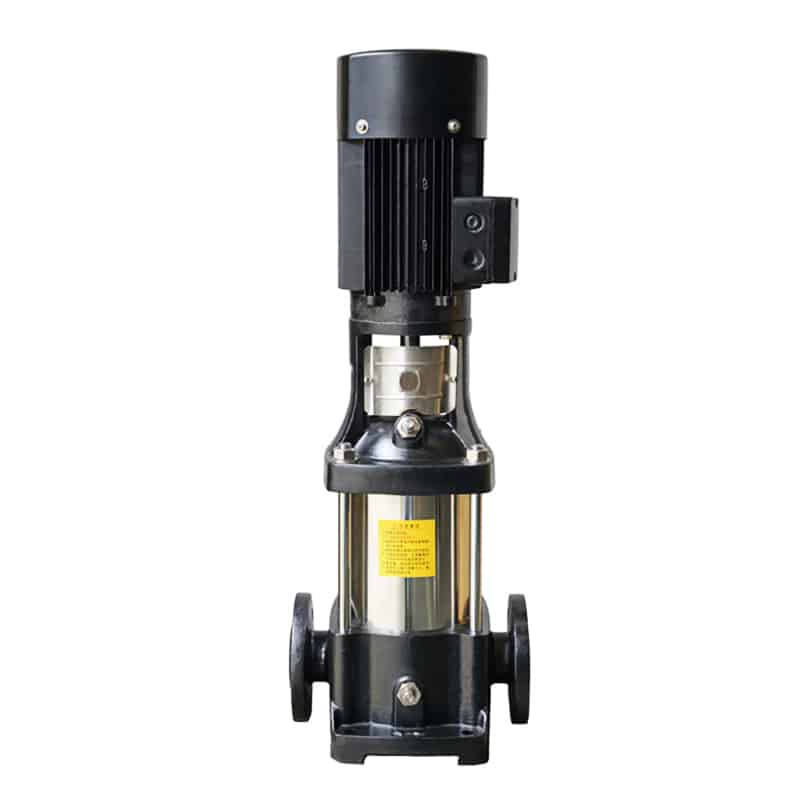
4. Cooling Water Circulation Pump
- Application: Used in industrial and commercial cooling systems to circulate cooling water and maintain equipment temperature, such as in power plants, chemical plants, and manufacturing facilities.
- Reason: The closed impeller improves pump efficiency, ensuring effective transport of clean water under high flow conditions.
5. Fire Pump
- Application: Used in fire protection systems to provide high-pressure water flow for firefighting.
- Reason: The closed impeller can generate high head and stable water flow, ensuring the reliability of the fire protection system in emergencies.
6. Chemical Transfer Pump
- Application: Chemical transfer pump used in the chemical industry to transport clean corrosive liquids.
- Reason: Closed impellers are often used with corrosion-resistant materials and are capable of transporting particle-free, low-corrosive liquids.
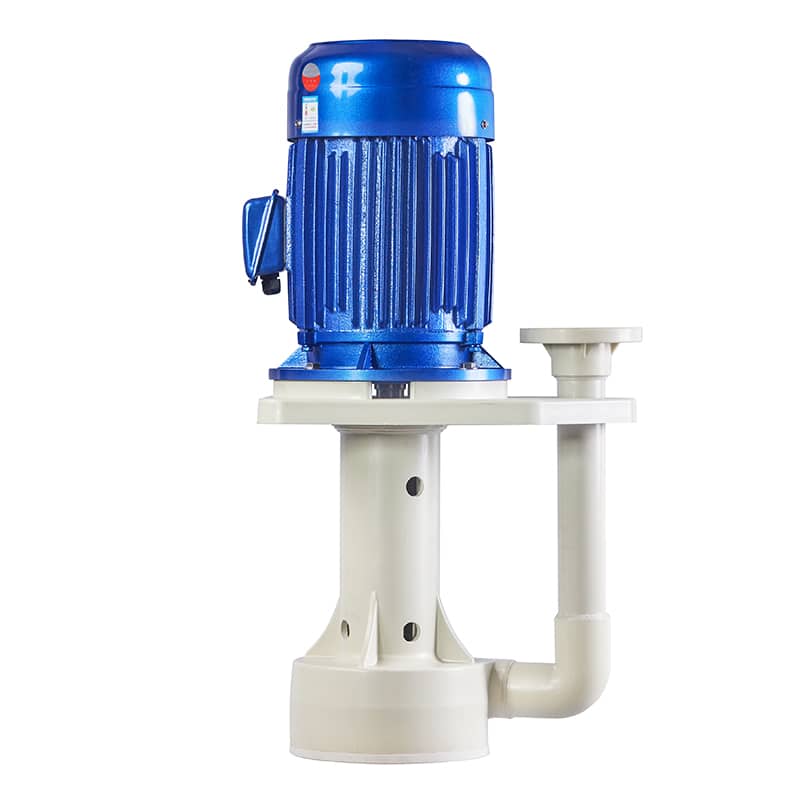
7. Inline Pump or Pipeline Pump
- Application: Used in industrial or municipal water supply pipelines to maintain water flow speed and pressure.
- Reason: The closed impeller performs stably in such continuous operation environments, providing efficient liquid transport.
8. Booster Pump
- Application: Used in situations where system pressure needs to be increased, such as water supply systems in high-rise buildings and industrial pressure systems.
- Reason: The closed impeller can provide high head with low power consumption, making it suitable for boosting applications.
Summary
Closed impellers are a vital component of centrifugal pumps, especially in applications that demand high efficiency, consistent performance, and durability. While they may not be suitable for all fluid types or conditions, their advantages make them an ideal choice for many industrial, commercial, and municipal applications.
Designed with user convenience in mind, AOBL pumps are easy to maintain and easy to install. This design reduces downtime and maintenance effort, thus improving overall operational efficiency. Product performance is not only reflected in the centrifugal pumps, diaphragm pumps, screw pumps, and additional pump accessories, welcome to contact us to customize professional water treatment solutions!

